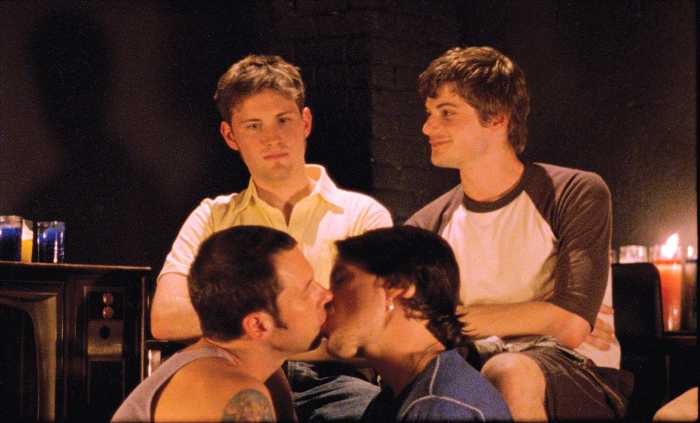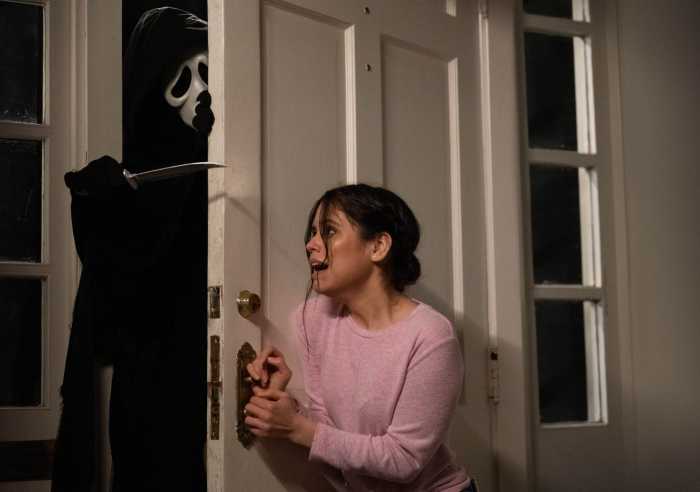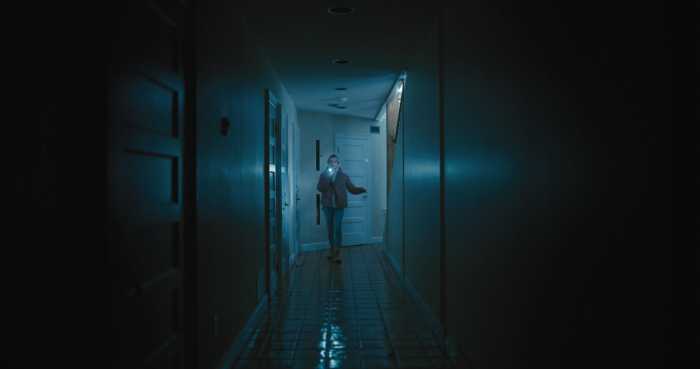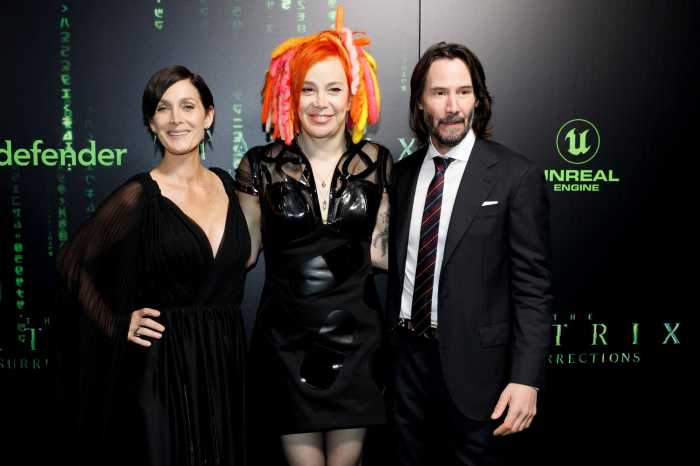The late, great, gay filmmaker Patrice Chéreau’s breakout 1983 film, “The Wounded Man” (aka “L’Homme Blessé”), is not soon forgotten by anyone who sees it. Co-written with the gay writer Hervé Guilbert — they won the Best Original Screenplay César Award — the film is intense and sexy, compelling, but also confusing. At times, the film plays like a silent film. There are many intriguing, elliptical sequences featuring characters wandering around or chasing each other (cruising) that build to a payoff as often as they don’t. But the mysterious, dream-like quality of the film is mesmerizing.
So, too, are the leads. Henri (Jean-Hugues Anglade in his first starring role) is a restless 20-year-old who lives with his overbearing parents, (Annick Alane and Armin Mueller-Stahl). At a train station to see his sister (Sophie Edmond) off, he wanders around, almost dazed, catching the eyes of various men, including Bosmans (Roland Bertin). When he encounters the handsome Jean (Vittorio Mezzogiorno), however, real desire sparks in Henri. He becomes instantly, uncontrollably obsessed. Henri does not quite know how to handle his feelings, and as he runs into Jean later — Jean is robbing a wounded man in the toilets — the two men begin a game of cat and mouse.
“The Wounded Man” teases viewers as Henri chases his dream man. A dinner Henri has with Bosmans yields some clues about Jean. And a scene where Jean takes Henri home, where he lives with his girlfriend, Elisabeth (Lisa Kreuzer), is as frustrating for Henri — who shyly takes everything in — as it is for viewers who want these two men to couple up.
Here, Chéreau is playing with the audience’s expectations and desires. Watching Henri watch Jean undress, Henri’s expression reveals an attraction which he must contain. The next morning, Jean gives Henri his knife and his trust, but Henri has nothing to give in return. Jean also tells Henri he is a cop, and he wants Henri to lure a wealthy older man to a hotel so they can rob him. As Henri arranges a tryst with a client (Claude Berri), he becomes overwhelmed having to go through with the assignation. But this scene reveals much about Henri’s character — that he will go to almost any length to be with, or please, Jean. It is significant that Henri later puts on Jean’s discarded clothes as if dressing like the man he loves will bring him closer to being with him.
“The Wounded Man” considers this kind of all-consuming desire through a series of scenes that may have viewers struggling to parse out what exactly Henri is thinking. His interactions with various characters exist in what feels like a kind of liminal state, but this is also why the film is so exciting. There are scenes that take place in crowded restrooms, where Henri meets another young man (Hammou Graïa) and they search and search for a place where they can kiss privately. Eventually, they kiss publicly, and passionately, in one of the film’s sexier moments. Another strange, hypnotic sequence has Bosmans driving Henri to a spot where couples have sex in parked cars. Viewers, like Henri, absorb the sex in the air; Bosmans, in contrast, appreciates listening.
Much of the film is gritty, with Henri getting dirtier and dirtier as he pursues Jean, who has appeared to have gone missing. As he wanders the empty streets and the train station, Henri becomes more determined to find Jean. When they do reunite, with the help of Bosman, they enact a pantomime of sex: Jean sucks his own thumb atop Henri’s nude body as if it was his penis — and Jean explicitly asks Henri not to touch him. The scene illustrates the abstract nature of control and desire in their relationship, as well as ideas of intimacy, trust, and exchange. It is a strange but powerful sequence, one of many in this stimulating film.
Chéreau emphasizes the unspoken desire throughout “The Wounded Man,” and many episodes reflect with the promise and possibility of sex. He even builds sexual tension during a scene when Jean and Henri are robbing in a dry cleaner and Jean steals Henri’s ID card out of his back pocket; the camera is fixed on Henri’s bluejeaned ass.
Jean is so magnetic that viewers share Henri’s desire and fascination with him. That the swoon-inducing Vittorio Mezzogiorno plays him with a mix of mystery and danger only adds to his appeal. But it is Anglade’s turn as Henri that really makes “The Wounded Man” so compelling. His character is as wiry as his body, and Anglade plays up Henri’s innocence with a wide-eyed look that is full of wonder and longing. His facial expressions and body language emphasize his perpetual disorientation. He stares forlornly eating a sandwich, biting more before he finishes chewing. Another shot has him sitting alone on a bench in the train station with one bare foot before he decides to put himself together and go visit his sister in Frankfurt. But it is his scenes with Jean where Anglade become electrified — as if he can’t believe or handle the sexual tension between them. This is most apparent in the film’s climatic scene that is as erotic as it is shocking.
As for the question of who the wounded man of the title is, it could be the guy in the toilet that brings Henri and Jean together. But both Henri and Jean (along with other characters) suffer various emotional and physical injuries over the course of the film. “The Wounded Man” deliberately leaves viewers with more questions than answers, but that is what makes this classic film so provocative and haunting.
Also screening with “The Wounded Man” — on January 7 and 8 only — is “Modesty and Shame,” Hervé Guibert’s hour-long documentary that chronicles him living with AIDS. The film features Guibert acknowledging his deterioration. Examining his skeletal body, he observes seeing “death coming in the mirror.” He has massage therapy sessions, doctor appointments, and even undergoes a surgical procedure. Guibert also contemplates the uncertainty of new medications and discusses suicide with his 95-year-old great aunt. This absorbing portrait includes poetic scenes Guibert at a country home where he eats, reads, and goes into the water. This is an intimate and wistful documentary self-portrait that gives viewers a poignant glimpse into this celebrated writer’s life.
“The Wounded Man” — screening January 5-12 at 7:30 pm nightly | “Modesty and Shame” — January 7-8 only at 5:45 pm.
“The Wounded Man” | Directed by Patrice Chéreau | Opening January 5 at the Anthology Film Archives. Distributed by Altered Innocence & Anus Films













